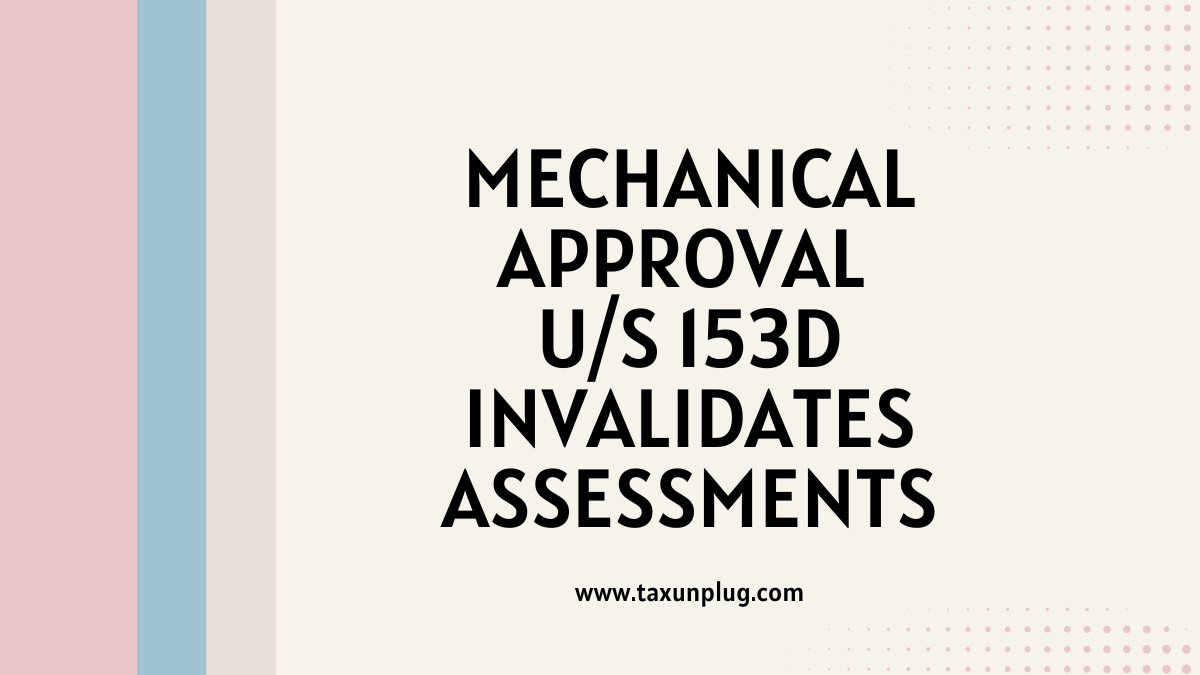Mechanical approval u/s 153D invalidates assessments
SVP Southwest Industries Ltd v. The Deputy Commissioner of Income Tax [ITA No. 1269/Mum/2022] (ITAT Mumbai)
The Hon’ble ITAT Mumbai reviewed contentions regarding the validity of certain tax assessment orders. The key issue was whether the necessary prior approval from the Joint Commissioner of Income Tax (JCIT) was properly obtained, as required by section 153D of the Income Tax Act.
Section 153D mandates that any assessment order must receive prior approval from a JCIT, ensuring oversight in cases involving searches or requisitions.
The assessee argued that the approval process was flawed because it was claimed that the JCIT’s approval was mechanical and lacked proper consideration. The draft assessment orders were not properly reviewed.
The Hon’ble Tribunal found that few companies were not actually in existence and had not filed any returns. Despite this, the Assessing Officer (AO) carried out assessment proceedings against these companies and treated their returns as if they were filed by the non-existent companies.
The Tribunal found the presence of approval numbers and approval dates from the Additional CIT in some draft assessment orders concerning. The assessee had provided a list of draft orders, covering various assessment years and different companies. It was however unclear as to how these details could appear in draft orders, as it seemed improbable for draft assessments to include such approval specifics.
It further found that the Assessing Officer’s actions were approved by the Additional Commissioner of Income Tax (CIT) under Section 153D of the Income Tax Act, which mandates that approval from higher authorities is required for certain assessments. However, the draft assessment orders were approved even though the companies were not incorporated, indicating a lack of due diligence and proper application of mind by the approving authority.
Moreover, the approvals were granted mechanically, without proper consideration of the facts, and this lack of due process violated principles of fair play and natural justice. Consequently, the Tribunal annulled the assessment orders, deeming them invalid.
The Hon’ble ITAT Mumbai also emphasized that the approval process is not a mere formality but requires a genuine review of the draft order. There was evidence that approvals were granted without detailed examination or reasoning. It also ruled that the approvals granted were without proper application of mind.
The guidelines from the Central Board of Direct Taxes (CBDT) under Section 119 of the Act were not followed, which require a thorough review and written approval.
Consequently, the assessment orders were invalidated, as they did not meet the legal requirements.
This decision reinforces the importance of thorough and thoughtful oversight in tax assessments, ensuring fairness and compliance with the law.
To download official order, click here.
“The site is for information purposes only and does not provide legal advice of any sort. Viewing this site, receipt of information contained on this site, or the transmission of information from or to this site does not constitute an attorney-client relationship.
The information on this site is not intended to be a substitute for professional advice.”

